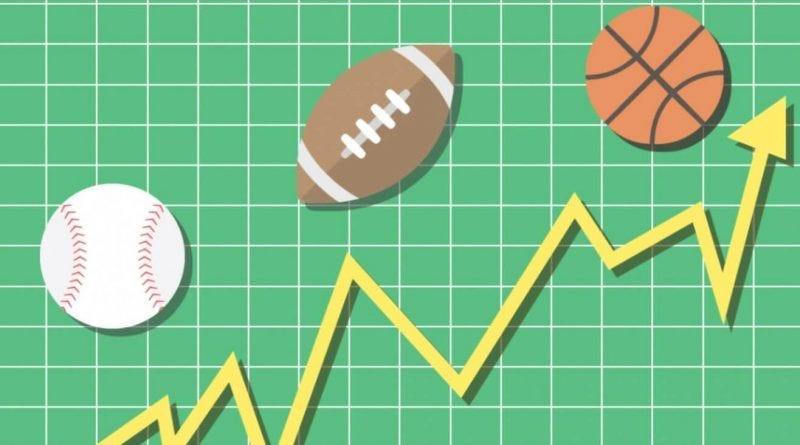Injury and suspension of players are a major aspect in predicting performance. This can be a major aspect in determining a team’s performance.
Key Players Important Players players, especially those who are in crucial positions or are superstars (such for example, the quarterback of American Football, or the goalkeeper in Soccer) can affect the team.
Depth of the squad Teams who have less depth can struggle with suspensions, injuries and replacement players who may not match their first-choice quality.
Tactical Adaptations
Strategy and Formation The coach may have to modify their tactics and formations to compensate for missing players. This can cause a disruption in the normal flow and effectiveness of a team.
Role shifts could be a problem for those who remain on the team. They may have to be taught new roles and this can affect their performance.
Psychological Effects:
Team morale: Absence of important players could influence the morale of and confidence in the rest of the squad.
Confidence in opposition: They might be more optimistic or enthusiastic if they know that they will face a weakened squad.
Data from historical and statistical sources:
Past Performance: The historical data on how a team performs without specific players could reveal potential effects. Some teams may have backups and systems that are reliable in place, whereas others might be struggling significantly.
Game Context:
Importance of a Match – The importance of a match (e.g. regular season against. postseason) can impact how the absence of a player could affect the team. In critical games teams may possess a higher level of motivation or strategy to cope when players are absent.
The strength of your opponent. The quality of your opponent is crucial. A strong team can take advantage of the absences of an inferior team.
Return and Recovery
Understanding the severity of a injury and its expected duration of recovery is vital. The impact of short-term absences might differ from long-term injury.
Following return: It could take some time for players to get back to their full fitness.
Market Reactions
Betting odds: The changes in betting odds are often caused by injuries or suspensions. They reflect the perception of impact these incidents have on a team’s winning chances. When you analyze these market reactions to the absence of a player, you will gain insights on how the absences are perceived.
Suspensions and injuries to players play a vital role in predicting the outcomes of sports. These factors can have an impact on team dynamics, strategy, and performance. It is essential to account for other factors such as the form of players and their head-to-head performance and also the external environment, to make accurate predictions. Take a look at the most popular today’s tennis at matchstat.com for blog advice.

What Are The Most Important Aspects Of Strategic And Tactical Thinking In Predicting Sport Results?
In order to accurately predict sports results, it is important to take into consideration strategies and tactical considerations. Planning and executing strategies that target an opponent’s weaknesses while also maximizing the strengths of a team is crucial. These are the most important factors.
Matchups can be exploited Effective strategies typically include establishing matches that favorably. A football team may use an winger who is fast to take on a slower full-back.
The ability to adapt to conditions Strategies can be altered based on weather, playing surface, or the venue, maximizing a team’s strengths under specific conditions.
Flexibility and adaptability:
In-Game Changes: Teams who have the ability to change their strategies throughout a game tend to have greater success. This may include tactical adjustments, changing the formation, or adjusting offensive and defensive strategies based on the tempo of the match.
The tactics of the opponent teams with the best chances of winning are those that can effectively counteract it. Knowing and anticipating their strategy of the opponent can help reduce their strength.
Defensive and Offensive Strategies:
A well-organized defensive structure: Effective defensive strategies, such as a high pressing or a deep defending can suppress the opponent’s attack. Teams with good defensive structures tend to concede less goals.
Varying Attacking Strategies: Diverse and varied attacking strategies, like rapid counterattacks, possession-based plays or set-piece specificization can degrade even the most organized defenses.
Team and player roles
Clarity of Role – Clearly defined roles within the team will ensure that everyone knows their roles. This is crucial for executing the overall plan.
Key Players: Utilizing key players to increase their effectiveness in roles like playmaker in midfield or target man in the attack is crucial.
Analyzing the historical and contextual aspects
Previous Meetings: Examining how teams ‘ tactical approaches have been formulated in prior encounters can provide insights into the possible game plan and outcomes.
The current form. The team’s and players’ current styles are to be considered in determining the best strategy. A tactic that was used in the past may require adjustment if it has changed.
Psychological Impact
Preparation and confidence Teams that have clear plans, who are well-prepared, are more likely to be confident. This edge in a psychological sense could be essential in games that are tight.
Disrupting opponents: Effective strategies can put off opponents, leading to errors and a loss of morale which is crucial.
Sport-Specific Considerations:
Soccer: Formations, such as 4-3-3 and 3-5-2, are vital. Also, set-pieces and pressing styles play a crucial role. The tactics you choose will determine if you are able to manage midfield or take advantage of wide areas.
Basketball: Strategies such as zone defense against. man-toman, speed of play, as well as offensive schemes (e.g. pick-and-roll, isolation plays) are vital.
Cricket: Field positions, bowling rotations, and batsmen’s orders can have a significant impact on the game’s outcome, particularly when playing in different formats, such as Test matches vs. T20.
The influence of the coach and management in the game:
Tactical Understanding: A coach’s ability to comprehend the game, as well as create and execute effective tactics is often a key element in determining whether an individual team will be successful.
Team Buy In Execution of a tactical plan is affected by the extent that players believe in and are aware of it. Cohesive implementation of strategy is essential.
Conclusion: Strategies and tactics are crucial to forecast the outcome of sports. They impact every aspect of performance, from individual’s to team dynamics. Together with other elements like injuries and form analysis, a good understanding of tactical concepts can be utilized to accurately predict the future. Follow the top rated try this for more tips.

How Important Are Market Odds And Movements When Trying To Predict The Outcome Of Sports?
They are useful in predicting the outcome of sporting events, however their accuracy is contingent on a variety of aspects. This is how they work:Aggregate Wisdom
Efficient market: Betting Markets are considered to be efficient by aggregating the collective opinions and experience of a variety of bettors. In this way, odds reflect a common opinion about the result.
Information Incorporation: Market chances quickly incorporate new information, including injuries, team news, or weather conditions, making them a useful source of real-time data.
Indicator Confidence
Assessment of probability: Odds reflect the probability that betting market assigns to every outcome. Lower odds indicate higher probabilities and greater certainty on the outcome.
Market Sentiment. The most significant changes in the direction of odds, such as abrupt changes or constant fluctuations can indicate shifts in market mood.
Risk Assessment:
Bookmakers adjust odds in order to balance their books and control the risk. The understanding of these adjustments could provide insight into bookmakers’ views of the game’s likely outcome, as well as the risks associated with it.
Arbitrage: If odds differ among bookmakers, arbitrage can be a possibility. Bettors gain from betting on a variety of outcomes.
Influence on public attitudes:
Public Perception: Market odds may affect the public’s perception of a match as well as its coverage in the media as well as morale of the team and players.
Self-Fulfilling Proverb: In high-profile games with heavily favored team an increase in betting could lead to further shifting of odds and may even strengthen the expected outcome.
Correlation statistical:
Accuracy Indicator: Generally, the market’s odds are generally in line with the probability of a particular outcome, especially when markets are well-regulated and liquid.
Calibration: Comparing the market’s odds with statistical forecasts will help determine the reliability of both models as well as identify potential discrepancies.
Examining Market Biases:
Overreactions: Markets may overreact to specific incidents, like injuries to key players or recent team performances, which can lead to an exaggerated increase in odds.
Bookmakers will often underrate the odds that an underdog team will win, especially when it comes to highly-publicized matches. This creates the opportunity to make money betting.
External Influences
Manipulation: Bets markets could be affected by a variety of factors that aren’t directly related to the game, like rumors, speculation or match fixing attempts. Knowing these risk factors is crucial when interpreting movements in odds.
Regulative Changes. Changes in gambling regulation or market dynamics may affect the movements of odds as well as the efficiency of markets.
Contextual Assessment:
Market odds are a complementary tool alongside other factors like team performance, injuries to players as well as tactical considerations and the past data to make predictions.
Market risks can be easily incorporated into models. They could be utilized as inputs or benchmarks to assess the model’s performance.
In the end, market odds and movements are important in predicting the outcome of sports events as they reflect the collective wisdom and opinions of the betting industry. Understanding the dynamics of markets can provide useful insight into sporting events. Although they’re not 100% accurate, other aspects must be taken into consideration. 